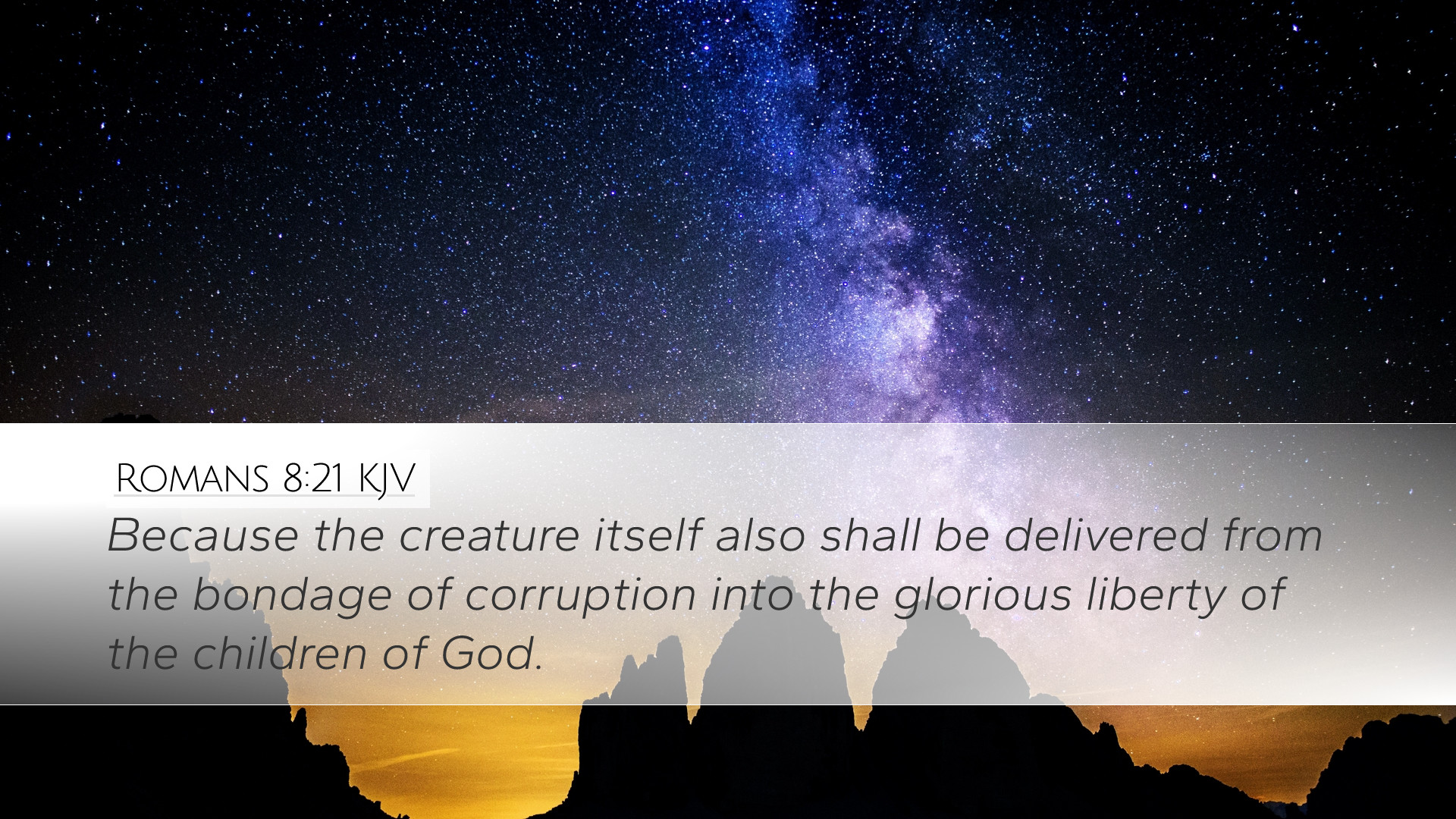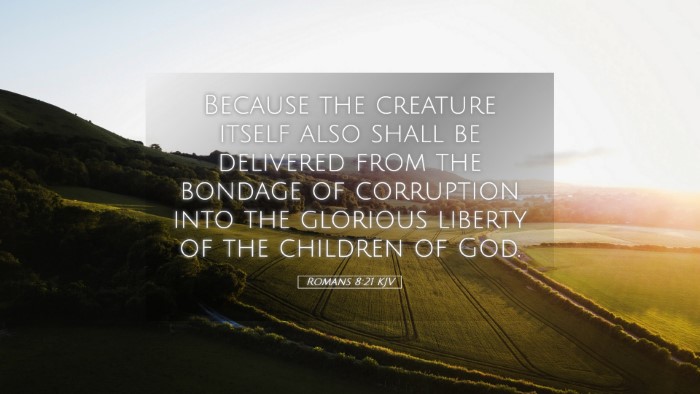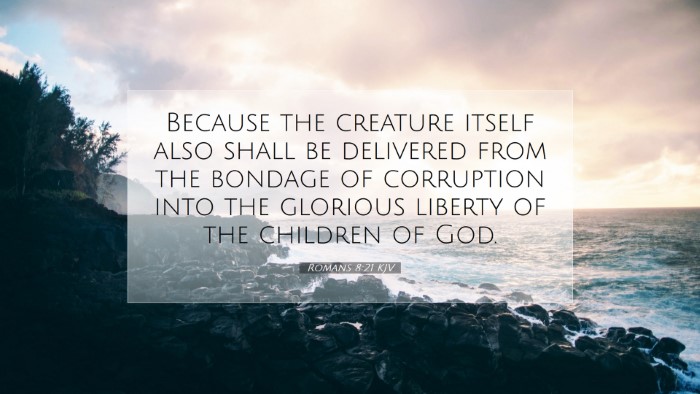Commentary on Romans 8:21
Romans 8:21 states: “Because the creature itself also shall be delivered from the bondage of corruption into the glorious liberty of the children of God.” This verse encapsulates a profound truth about the redemptive purpose of God and the ultimate hope that awaits both creation and humanity. In this commentary, we will explore insights from esteemed public domain commentators such as Matthew Henry, Albert Barnes, and Adam Clarke.
Contextual Overview
To fully grasp the significance of Romans 8:21, it is vital to consider its context within Paul’s letter to the Romans. The apostle Paul presents a contrast between the present sufferings of the world and the glory that is to be revealed. This chapter is critical in understanding the role of suffering and the hope of redemption.
Divine Purpose in Creation's Suffering
Matthew Henry expounds that the “creature” mentioned refers to all of creation, which is subjected to vanity and corruption due to sin. This condition is not inherent to its nature but rather an imposed bondage that reflects the broken state of the world. The futility associated with creation can be seen as a means through which God is working to bring about a more profound and glorious state.
Albert Barnes adds that the profound hope of creation lies in its future liberation. The allusion to being “delivered” suggests that creation is in a waiting period, expecting the revelation of God's redemptive plan that will restore it completely. The language of bondage conveys the seriousness of the corruption that came as a consequence of humanity's fall into sin.
The Contrast of Corruption and Liberty
This verse draws a stark contrast between the bondage of corruption and the “glorious liberty” of the children of God. Adam Clarke interprets “glorious liberty” as not only freedom from sin but also the exaltation to a state of existence that reflects God’s glory. This transformation is not limited to humanity; it extends to all of creation, which groans in anticipation of its restoration.
- Bondage of Corruption: Refers to the present condition of a fallen world, including suffering, decay, and death.
- Glorious Liberty: Indicates the redeeming work of God which will culminate in a new creation where righteousness dwells.
Theological Implications
The implications of Romans 8:21 are vast for theology and pastoral ministry. The promise of liberation serves as a critical reassurance for believers who endure trials. Matthew Henry asserts that such hopeful expectations should encourage believers to endure hardships while affirming their faith in God's sovereignty. This anticipation is essential in a world filled with chaos and suffering.
Furthermore, Barnes emphasizes the communal aspect of redemption — that creation awaits a deliverance that is not just for humanity but for all that God has made. This perspective fosters an ecological and holistic understanding of salvation, urging believers to care for the world as an expression of their faith.
Practical Applications for Believers
Understanding Romans 8:21 can help reinforce a believer's hope and influence their daily lives. Here are several practical applications:
- Encouragement in Suffering: Believers can find strength in knowing that their suffering is not in vain but aligns with the cosmic story of redemption.
- Active Participation: Christians are called to engage in creation care, reflecting God’s mandate to steward the earth while longing for its redemption.
- Hopeful Anticipation: The promise of God’s future restoration encourages a posture of hope amidst present difficulties.
Conclusion
Romans 8:21 reminds us of God’s overarching plan for creation and humanity. By examining the insights from Matthew Henry, Albert Barnes, and Adam Clarke, one can appreciate the depth and breadth of this verse. It speaks powerfully to the human condition, articulating a divine promise for liberation that transcends our current state. As believers reflect on this hope, they are called not only to endure the present suffering but also to actively participate in God's redemptive mission in the world.


